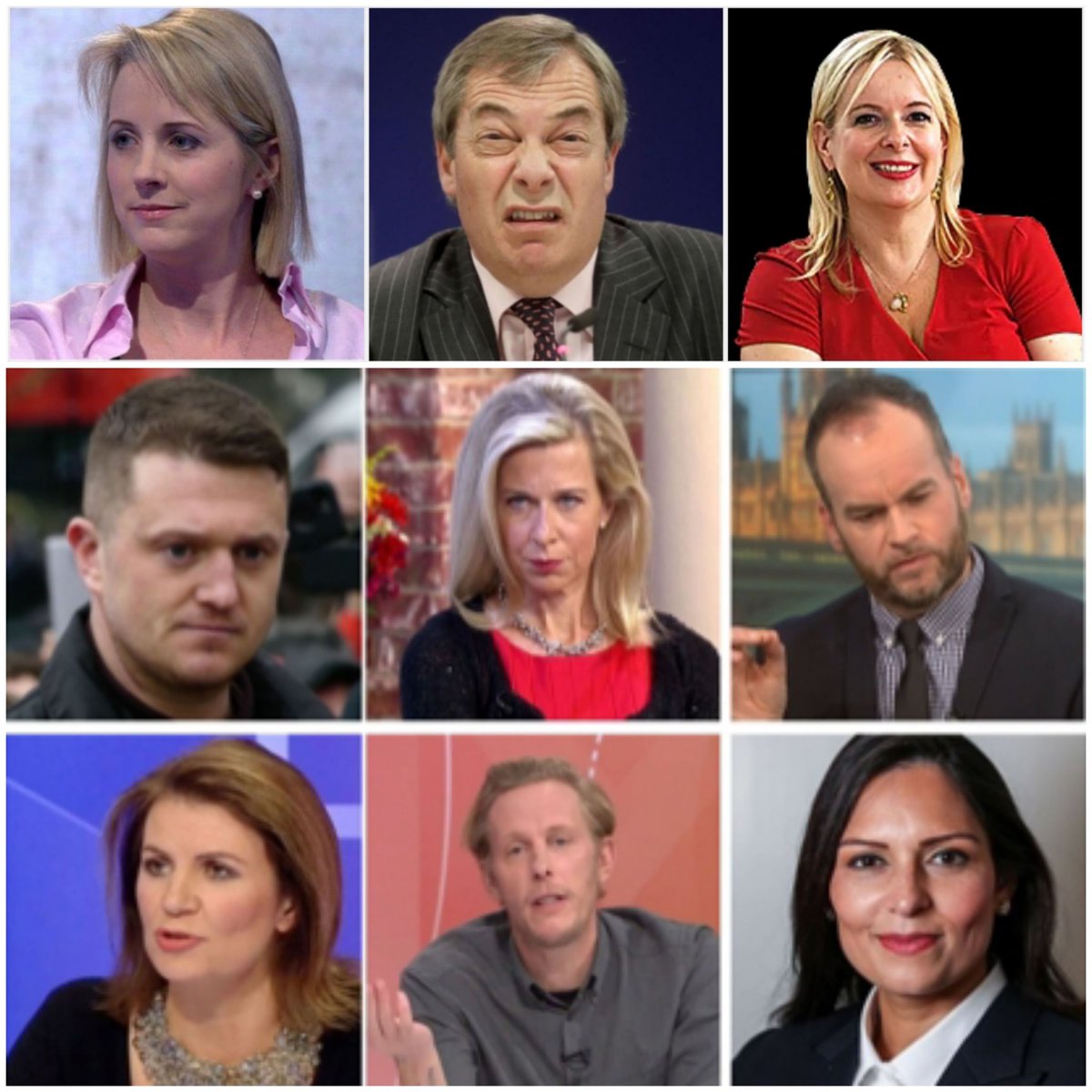
Presumably Claire Fox is on #newsnight because Tommy Robinson, David Starkey, Darren Grimes, Katie Hopkins, Nigel Farage, Laurence Fox, Allison Pearson, Isabel Oakeshott, Richard Tice, Tim Martin, Toby Young, Brendan O'Neill & that Scottish bloke from 'Coast' are all unavailable. 

People asking why I included Coast Guy:
1 For bigging up David Starkey after his racist outburst
2 For saying young people shouldn’t go to university because Universities have succumbed to a "Maoist" cultural revolution
3 For RTing unhinged hard-right crank Paul Joseph-Watson
1 For bigging up David Starkey after his racist outburst
2 For saying young people shouldn’t go to university because Universities have succumbed to a "Maoist" cultural revolution
3 For RTing unhinged hard-right crank Paul Joseph-Watson

4 Saying #BlackLivesMatter is essentially a plot by anarchists & communists to undermine the fabric of the British nation
5 Amplifying the antisemitic conspiracy theory about 'Cultural Marxism' which inspired Anders Breivik..
Just do your own research👍
thenational.scot/news/18560680.…
5 Amplifying the antisemitic conspiracy theory about 'Cultural Marxism' which inspired Anders Breivik..
Just do your own research👍
thenational.scot/news/18560680.…
Lots of hard-right trolls saying I want to shut down debate. Nope. I want the opposite of what they claim: there are tens of millions of articulate, interesting people in Britain, yet we're relentlessly fed a tiny bandwidth of views from the same tiny pool of opportunist cranks. 

• • •
Missing some Tweet in this thread? You can try to
force a refresh



